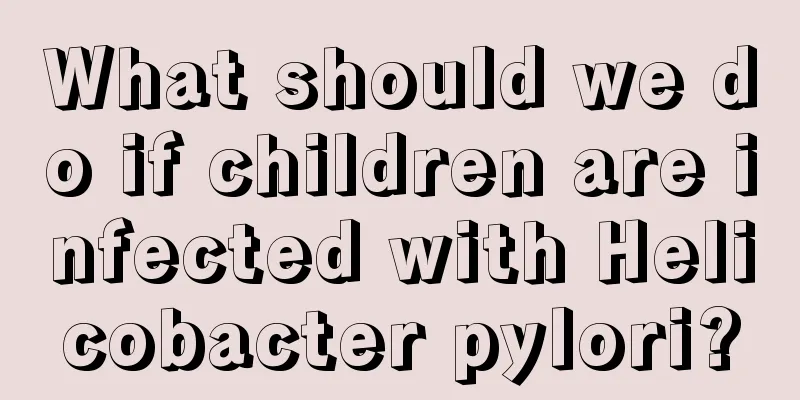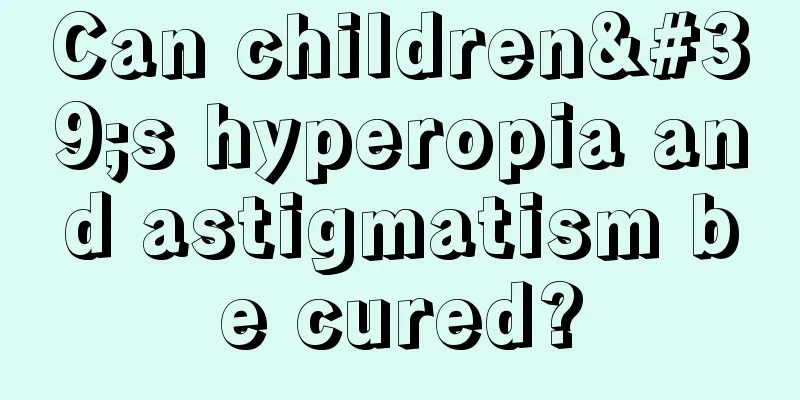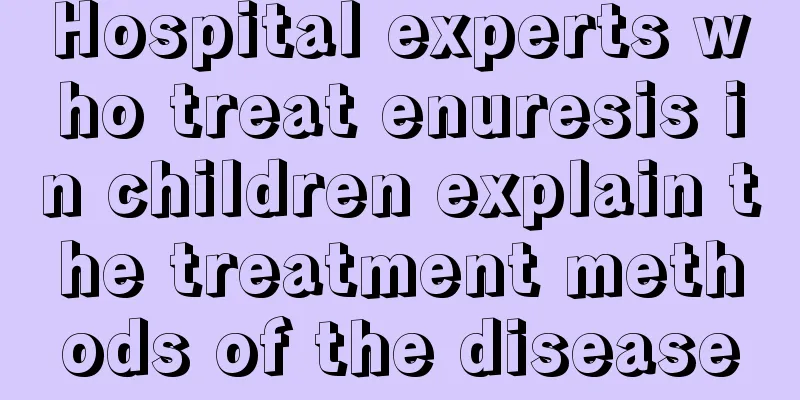What should we do if children are infected with Helicobacter pylori?

|
Helicobacter pylori infection in children is a disease that is common in children. Currently, the pathogenic mechanism of this disease is still unclear. Studies have found that in addition to the toxicity of bacteria, the immune ability of the person concerned, the environment, and natural conditions are also pathogenic factors of Helicobacter pylori infection. This disease can also lead to complications, the main symptoms of which are weight loss, anemia, gastrointestinal bleeding, etc. The exact pathogenic mechanism of Helicobacter pylori infection in children is still unclear. In addition to the virulence factors of the bacteria, the host's immune response and environmental influences also play a role. Recent studies have found that the pathogenic mechanism of Hp depends on the virulence (colonization) factors and pathogenic factors of the bacteria. The spiral shape and motility of Hp, its adaptive enzymes and proteins, and its ability to adhere to cells and mucosa enable it to survive in the gastric cavity. The toxins it secretes and the inflammatory mediators it induces directly destroy the gastric mucosal barrier and cause gastric mucosal damage. Urease is the most important colonization factor of Hp. Hp synthesizes a large amount of urease. The ammonia produced by urease when it decomposes urea can neutralize hydrochloric acid. This transient low acid and high pH enable the bacteria to successfully pass through the gastric mucus layer to reach the mucosal surface, and colonize and survive in this alkaline microenvironment. At the same time, when the ammonia produced by urease increases, it also has a toxic effect on the gastric mucosa. Hp is a chronic source of infection. After entering the body, it mainly settles in the gastric mucosa, causing a series of pathological changes and leading to different clinical consequences. Common Hp-related diseases in children are mainly chronic active gastritis, duodenal ulcer and gastric ulcer, rare are gastric MALT lymphoma and rare gastric adenocarcinoma. Therefore, the clinical manifestations after infection with Hp are also the symptoms of these diseases, such as upper abdominal pain, fullness, early satiety, anorexia or upper gastrointestinal bleeding. Treatment is very important for children infected with Helicobacter pylori. Common medicines include antibiotics, metronidazole, clarithromycin, salicylic acid, etc. Prevention is also very important, which requires us to create a good living and learning environment for children. Because the disease has a relatively high incidence in developing countries and is prone to relapse, some people have begun to study highly effective vaccines, which is also a great blessing for such patients. |
<<: What should I do if my three-month-old baby hiccups?
>>: What are the dangers of insufficient sleep for children?
Recommend
How to treat children’s spleen and stomach strengthening drugs?
Children are a vulnerable group, and their bodies...
What are the symptoms of high fever convulsions in children?
Children's resistance is relatively poor, so ...
What to do if a child has rhinitis and sneezes
Rhinitis has been plaguing people because of its ...
How many ml should a premature baby eat each time
The digestive function of premature babies is rel...
Calcium supplement for 6-year-old children
Babies are about to enter the growth stage at the...
Reasons why children's sweat smells sour
Every child loves to move around, but exercise wi...
What are the symptoms of food indigestion in children
Food accumulation is a term in traditional Chines...
What to do if your newborn doesn't eat
The physical health of newborns is an issue that ...
Can babies eat noodles if they have diarrhea? I understand everything after reading it.
If the baby has diarrhea, parents can feed the ba...
What should I do if my baby gets blisters after being bitten by a mosquito?
Mosquitoes do exist in summer, especially in the ...
Which department should children with ADHD go to?
Attention deficit hyperactivity disorder (ADHD) i...
What causes children to sweat while sleeping?
Children often sweat when sleeping at night, but ...
What should I do if my child is born with amblyopia?
The rapid development of modern science and techn...
The dangers of trocars
Children's bodies are not fully developed yet...
How to treat urinary tract infection in children
Urinary tract infection in children will definite...









